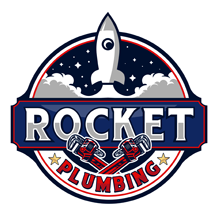When it’s time to replace your water heater, one of the biggest decisions you’ll make is whether to go with a gas or electric model. Both options can provide consistent hot water for your home, but they differ in cost, energy efficiency, installation, and performance. Understanding the pros and cons of each type can help you make a decision that fits your needs—and your budget.
How Do Gas and Electric Water Heaters Work?
Gas water heaters use natural gas or propane to heat water. A burner at the bottom of the tank heats the water and maintains temperature through a thermostat.
Electric water heaters use electric heating elements inside the tank. These elements warm the water directly, much like a giant electric kettle.
While the basic function is the same—heating and storing water—there are important differences that can affect your home’s comfort and energy use.
Pros of Gas Water Heaters
Lower Operating Costs
Natural gas is often cheaper than electricity in many areas, meaning you’ll likely pay less month-to-month.
Faster Heating & Recovery Times
Gas models typically heat water faster and recover quicker after high usage—great for large families or homes with multiple bathrooms.
Still Works During Power Outages
Gas water heaters don’t rely on electricity, so you can still have hot water during blackouts (as long as it has a standing pilot light).
Cons of Gas Water Heaters
Higher Upfront Cost
Gas models often cost more to purchase and install, especially if your home doesn’t already have a gas line.
More Complex Venting Requirements
They require proper ventilation (like a flue or exhaust pipe) to safely release combustion gases, which can make installation more complicated.
Potential Safety Concerns
While rare, gas leaks or carbon monoxide exposure are potential risks that require careful installation and maintenance.
Pros of Electric Water Heaters
Lower Installation Costs
Electric models are generally cheaper to buy and easier to install—especially in homes without existing gas lines.
Cleaner Operation
Electric water heaters don’t produce combustion gases, making them safer and more environmentally friendly for indoor use.
More Flexible Installation
They require less ventilation and can be placed in more locations around the home.
Cons of Electric Water Heaters
Higher Monthly Energy Costs
Electricity can be more expensive than gas, especially in colder climates or high-use households.
Slower Heating Times
Electric heaters take longer to heat a tank of water and recover more slowly after heavy usage.
Vulnerable to Power Outages
If your electricity goes out, so does your hot water—something to consider if you live in an area prone to outages.
Which One Is Right for Your Home?
The choice between gas and electric often comes down to your home setup, budget, and hot water needs. Here are a few questions to help guide your decision:
- Do you already have a gas line installed?
- Are you looking for lower upfront or lower long-term costs?
- Do you need faster recovery for a larger household?
- Is energy efficiency or installation flexibility more important?
At Rocket Plumbing, we help homeowners choose and install the right water heater for their home’s needs. Whether you’re leaning toward gas or electric, our licensed technicians can guide you through the decision and handle the install with expert care.
Ready to Upgrade Your Water Heater?
Contact Rocket Plumbing today for expert advice and professional water heater installation in your area. We’ll help you enjoy consistent, efficient hot water—no matter which type you choose.
Schedule a Service or call us today!

